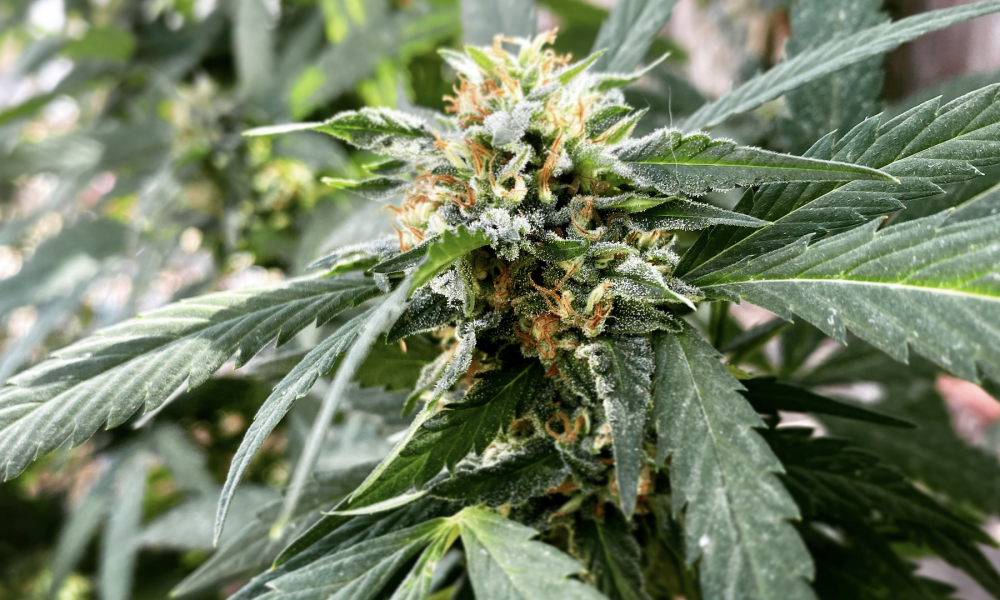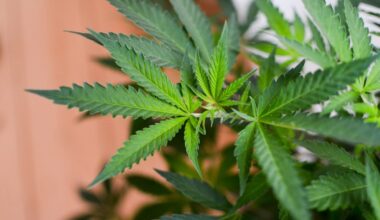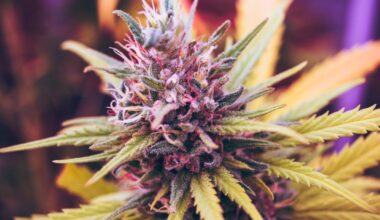The governor of the U.S. Virgin Islands (USVI) is renewing his call to legalize marijuana in the territory, putting pressure on the legislature to enact the reform as a revenue generator that he says is long overdue.
Gov. Albert Bryan Jr. (D) included expected legal cannabis revenue in his Fiscal Year 2022-2023 budget request that he sent to lawmakers on Tuesday and said he will be convening a special legislative session to get the job done.
At a press briefing, the governor singled out one key lawmaker, Sen. Janelle Sarauw (I), who he blames for blocking marijuana legislation to date.
“It’s just totally ridiculous now how long Senator Sarauw has been holding our bill in the legislature,” the governor, who has repeatedly pushed for legalization over recent years and released his own reform proposal in 2019, said on Tuesday. “Call her and tell her, ‘Why are you holding up this adult cannabis use legislation?’ We need to get it done. So we put it in [the budget].”
“We’re going to be calling the legislature into special session. We’re gonna give them plenty time to think about it,” he said. “But we have a $40 million funding gap this year that we need to fill with different types of funding resources. We want to get that going.”
Watch the governor talk about his marijuana legalization budget proposal, starting around 27:24 into the video below:
Bryan contested arguments that the state doesn’t need a recreational market because the territory already has a medical cannabis program that he enacted in 2019. (That said, the delayed implementation of that program has faced sharp criticism.)
“Don’t listen to them when they tell you about medicinal cannabis [revenue],” he said. “Medicinal cannabis use costs us money. It doesn’t make us a dime. We don’t tax it because it’s a medicine. So we need to get this [legalization] bill moving.”
According to the executive budget book, the territory will see “a modest $10 million in revenues from the anticipated adoption of Adult-Use Cannabis legislation.”

“We will be submitting proposed legislation as part of this budget that, if adopted, would create a substantive source of new revenues while fixing the flaws and omissions of the current medicinal marijuana law,” it says, adding that the projection was partly based on “knowledge gained from the forums organized by the 34th Legislature in Colorado this past November with [National Conference of State Legislatures] policy experts, Colorado state officials, and industry practitioners.”
Governor Albert Bryan Jr. along with members of his executive staff supports the 34th Legislature at the V.I. Legislative Cannabis Summit in Denver, Colorado. pic.twitter.com/ccLlPJw1nM
— Government House USVI (@govhouseusvi) October 25, 2021
Bryan, who has also talked about marijuana as a safer alternative to opioids for pain treatment, stressed that it’s “been three years now moving” the issue, and so lawmakers need to “get it through the legislature so we can get some money going.”
There was a hearing on the governor’s legalization proposal in 2020, with several government agencies testifying in favor of the reform and outlining how a regulated cannabis market could help the territory, especially given its economic needs.
It’s not clear when the governor intends to convene a special session for legislators to take up the bill, but it wouldn’t be the first time he’s done so. Bryan has also emphasized the need to legalize, tax and regulate cannabis to generate revenue amid the economic downturn caused by the coronavirus pandemic.
USVI would not be the first U.S. territory to legalize cannabis. The governor of the Commonwealth of the Northern Mariana Islands (CNMI) signed a bill to end prohibition in 2018, for example.
The following year, the governor of Guam signed legalization into law.
Medical Disclaimer:
The information provided in these blog posts is intended for general informational and educational purposes only. It is not a substitute for professional medical advice, diagnosis, or treatment. Always seek the advice of your physician or other qualified healthcare provider with any questions you may have regarding a medical condition. The use of any information provided in these blog posts is solely at your own risk. The authors and the website do not recommend or endorse any specific products, treatments, or procedures mentioned. Reliance on any information in these blog posts is solely at your own discretion.







